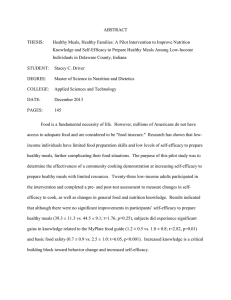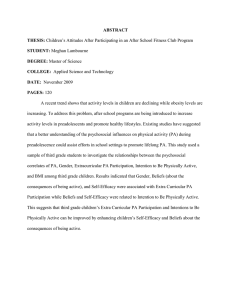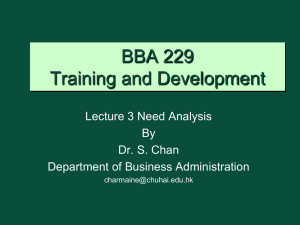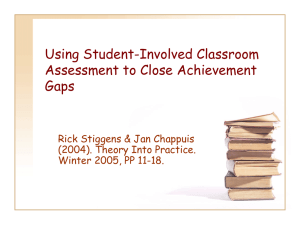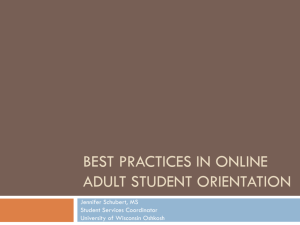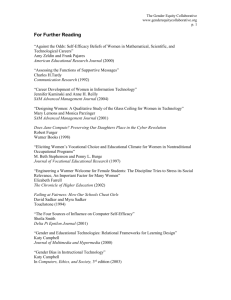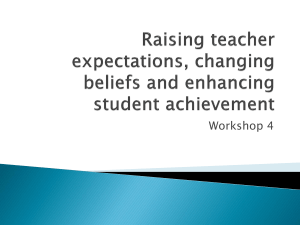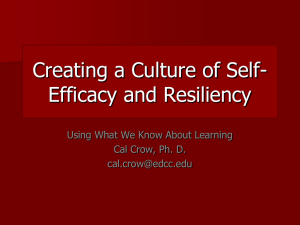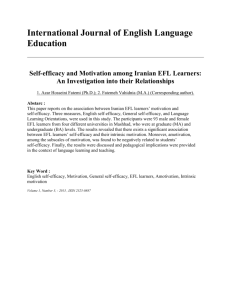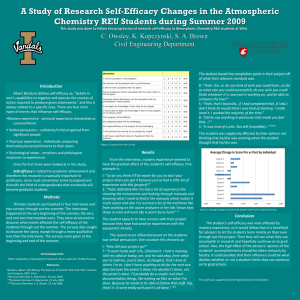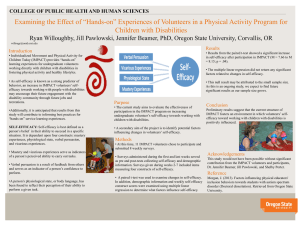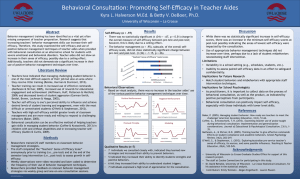ABSTRACT DISSERTATION: STUDENT:
advertisement
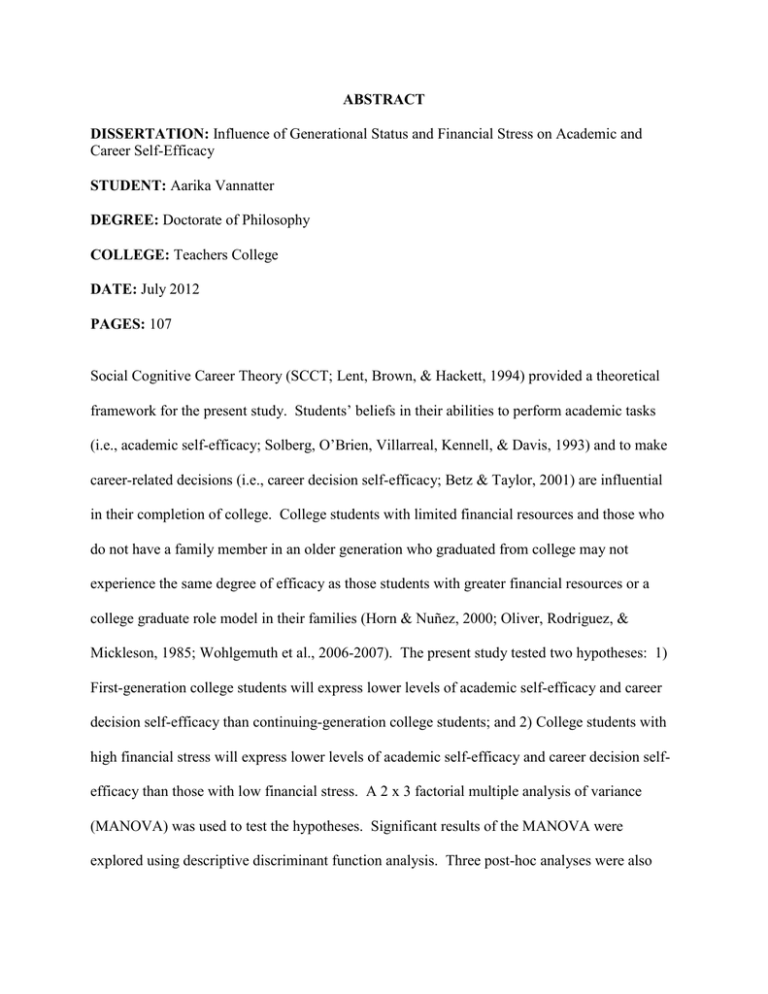
ABSTRACT DISSERTATION: Influence of Generational Status and Financial Stress on Academic and Career Self-Efficacy STUDENT: Aarika Vannatter DEGREE: Doctorate of Philosophy COLLEGE: Teachers College DATE: July 2012 PAGES: 107 Social Cognitive Career Theory (SCCT; Lent, Brown, & Hackett, 1994) provided a theoretical framework for the present study. Students’ beliefs in their abilities to perform academic tasks (i.e., academic self-efficacy; Solberg, O’Brien, Villarreal, Kennell, & Davis, 1993) and to make career-related decisions (i.e., career decision self-efficacy; Betz & Taylor, 2001) are influential in their completion of college. College students with limited financial resources and those who do not have a family member in an older generation who graduated from college may not experience the same degree of efficacy as those students with greater financial resources or a college graduate role model in their families (Horn & Nuñez, 2000; Oliver, Rodriguez, & Mickleson, 1985; Wohlgemuth et al., 2006-2007). The present study tested two hypotheses: 1) First-generation college students will express lower levels of academic self-efficacy and career decision self-efficacy than continuing-generation college students; and 2) College students with high financial stress will express lower levels of academic self-efficacy and career decision selfefficacy than those with low financial stress. A 2 x 3 factorial multiple analysis of variance (MANOVA) was used to test the hypotheses. Significant results of the MANOVA were explored using descriptive discriminant function analysis. Three post-hoc analyses were also completed. The results revealed no significant differences on levels of academic or career decision self-efficacy based on generational status, however, differences in both forms of selfefficacy were found based on financial stress. Strengths and limitations, implications for theory and counseling, and directions for future research are discussed. Consistent with SCCT, the salient factor of financial stress has an influence on college students’ academic self-efficacy and career decision self-efficacy. Contrary to much of the past research, one’s generational status does not have an influence on these two variables.
